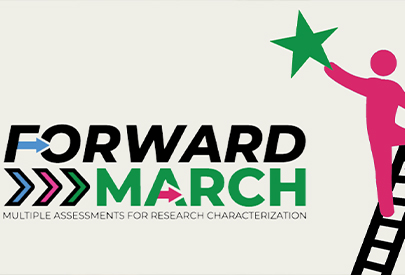Fragile X Syndrome and Fragile X Premutation Carrier Research Studies
Join our research participant registry to sign up for the studies listed below.
-
 LEAF STUDY
LEAF STUDYThe study is looking at how language and executive function affect academic skills like literacy and social skills in school-age children assigned female at birth with autism or fragile X syndrome.
Children assigned female at birth with:
- Fragile X syndrome ages 8–12
Email language.research@health.ucdavis.edu for more information.
- Fragile X syndrome ages 8–12
-
Toolbox: Quillivant Trial
Randomized Controlled Trial of Quillivant in IDD with ADHD
Learn MoreThe main purpose of this study is to test an assessment tool called the National Institute of Health Toolbox Cognition Battery. We hope that using this assessment tool will help us find out how well a medication called Quillivant Extended Release is working to improve ADHD and Intellectual Disability conditions.
- 6-24 years old
- Fragile X Syndrome, Down syndrome, Intellectual Disability, Autism, 22q11.2 Deletion Syndrome, ADHD or other neurodevelopmental disability
- Symptoms of ADHD
-
 TRAX
TRAXLongitudinal Study of Brain and Cognition in Fragile X Premutation Carriers
Learn MoreFragile X carriers are individuals with the FMR1 premutation, who are at risk of developing a neurodegenerative condition called fragile X-associated tremor/ ataxia syndrome (FXTAS) in later life. FXTAS symptoms include tremor, balance problems, cognitive changes, and a range of other neurological problems.
- Male
- 50 years and older
- Premutation Carriers with NO symptoms of FXTAS (in North America)
- Control (Sacramento Area)
-
 FORWARD-MARCH
FORWARD-MARCHFragile X Online Registry with Accessible Research Database
Learn MoreFORWARD-MARCH is the next step following a highly successful research study called FORWARD (Fragile X Online Registry with Accessible Research Database) that was started in 2012. The FORWARD study created the largest database of information on FXS in the United States. Data from the FORWARD study is being used by researchers to learn about the lives of people with FXS. Thanks to families who contribute to FORWARD, researchers are learning about important things like medication use, behaviors, and development over time. These findings are shared with other researchers and clinicians in order to help develop targeted therapies and treatments.
- Individuals with Fragile-X born between 2003 and 2020


